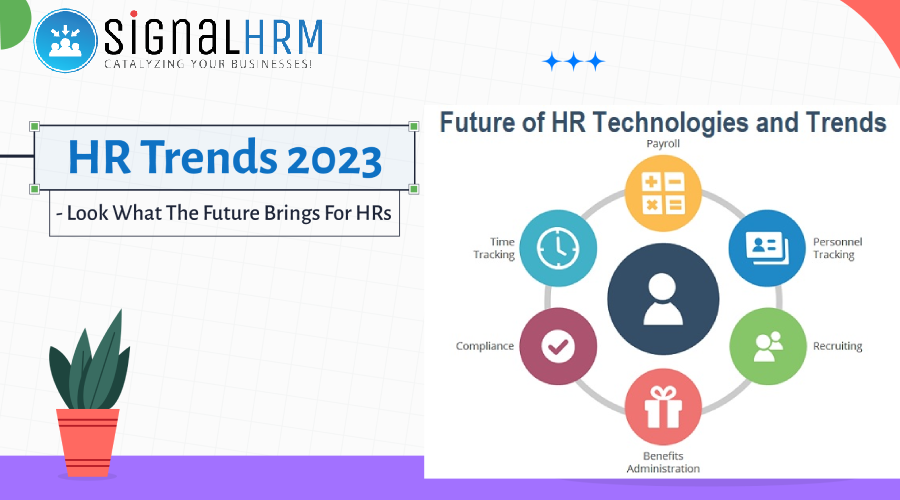
The year 2024 witnessed transformative changes, particularly in the field of Human resources. Beginning from redesigned work cultures that focus on human well-being and organizational adaptability, combining technology and HR practices will change the future of HR. Read this blog to learn the fundamental shifts that will cater to the changing needs of the modern workforce.
Leveraging Technology with HRMS software:
HR will witness a new combined workforce with humans and bots to enhance the potential of both entities, resulting in streamlined operations and high efficiency. Bots can manage monotonous tasks effectively, freeing up humans to focus on value-added processes.
Few HR departments are embarking on their journey into the metaverse for recruitment, training, and team-building activities to engage employees holistically. AI automation boosts efficiency and accuracy across HR functions making it an imperative element in the HR toolkit.
Human-centric culture:
Companies are continuously investing in a culture that values human resources, and prioritizes their well-being and growth. This increases employee engagement and boosts their morale and motivation, resulting in higher productivity and a positive impact on the bottom line.
Employees are looking for purpose-driven organizations where they are looking for a holistic employment experience rather than just a paycheck. With the rise of remote work and the global workforce, employee experience has become tremendously important. It begins with recruitment, onboarding, learning, development, and offboarding to ensure all the touchpoints are taken care of.
Employee benefits:
There is going to be a drastic shift in the way organizations support their employees. The main domains are personalized benefits, health benefits, financial wellness benefits, sustainability benefits, and family-friendly benefits.
- Personalized: Healthcare, life insurance, retirement, and paid time off;
- Health: Mental health, on-site fitness centers, and stress management programs
- Financial wellness: Debt assistance, fee reimbursement, and fin
- Sustainability: Carbon offsetting, green cleaning, and waste reduction
- Family-friendly: Paid parental leave, flexible work arrangements, elder care assistance
Learning and Development with HRMS software:
The merger of micro-learning with gamification is becoming increasingly popular. Gamification makes it easy to consume and retain information, thereby enhancing the outcomes of learning.
With the markets becoming more competitive and unpredictable, businesses are going agile. Therefore, there’s a growing need for upskilling and reskilling to adapt to new situations and handle disruptions to achieve organizational goals. LXPs (Learning Experience Platforms) offer interactive and intuitive interfaces to deliver a personalized, learner-centric learning experience. The HR department can leverage analytics to track important metrics such as course completion rates, engagement levels, and knowledge retention to explore ways to improve courses and desired learning outcomes.
Generative AI:
Generative AI offers personalized on-demand learning content. You can use it to auto-create video summaries, quizzes, and courses to make learning more effective.
Phygital is the future:
Post the COVID-19 pandemic, the surge of remote jobs, and real-time collocation, businesses are increasingly adopting the phygital approach (combining physical and digital experiences).
Internet of Things (IoT) devices, AI-driven chatbots, and automated scheduling tools are some of the market trends that are supporting the shift. Various cyber security techniques are being deployed to take care of sensitive data between physical and digital assets. Also, there has been a significant increase in asynchronous communication tools such as Trello, Notion, and Slack to facilitate real-time communication.
Amidst this transformative HR landscape, SignalHRM stands as an HRMS software that enables HR managers to transition to the trends. Whether it is deploying data-driven strategies, or creating an inclusive workplace culture, SignalHRM helps you to control all multifaceted elements of HR. For more information, reach out to us.